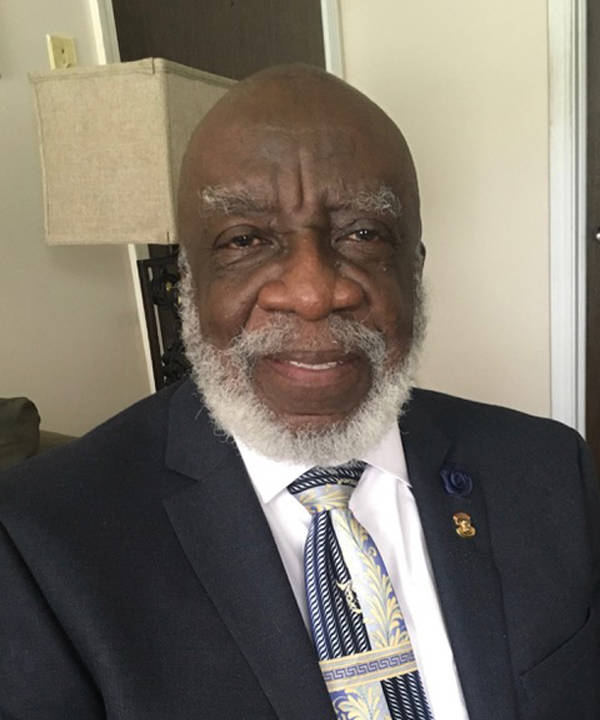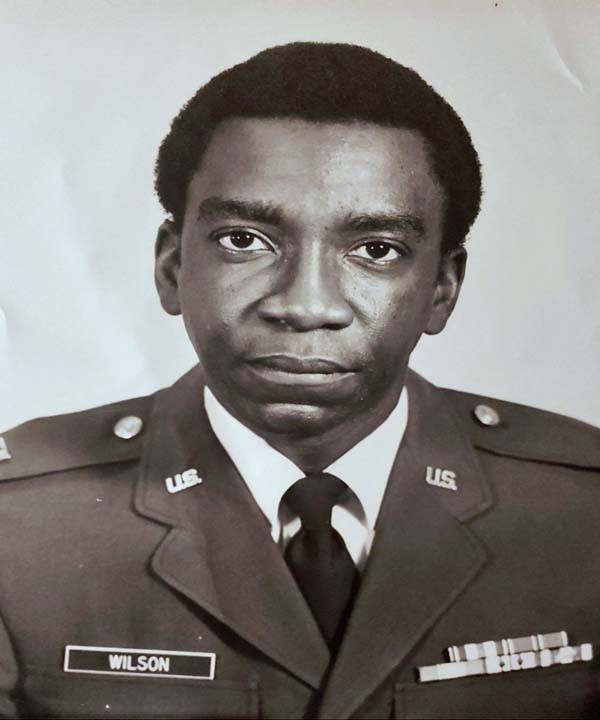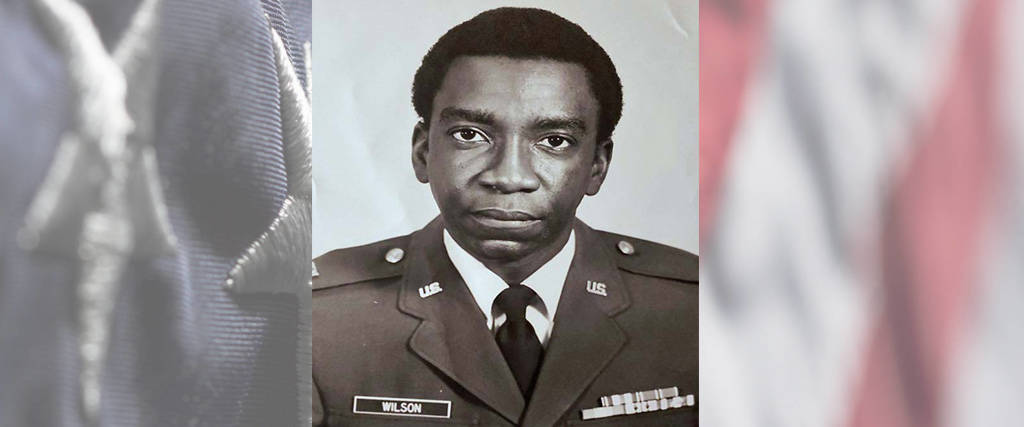U.S. Army Vietnam War Park Forest, IL Flight date: July, 2019
By Wendy L. Ellis, Honor Flight Chicago Veteran Interviews Volunteer
“Welcome to Tan Son Nhut. We are under attack, everybody prepare for a crash landing.” Those were the first words Capt. Clyde Wilson and his fellow officers heard from their pilot as they arrived in Vietnam in 1968. “Everything was ablaze,” says Wilson today. “We immediately rushed off the plane into 130 degree heat. You were instantly wet. You went into this bunker and got even wetter. You could hear the bombardment and rockets hitting the tarmac. People were trying to adjust to combat, and war, and thinking, I’m not really here. It was a horrific experience.”


That day was not only horrific, but a far cry from the mountains of West Virginia, where Clyde had barely begun his new job with Job Corps after graduating from Jackson State University in his home state of Mississippi. Wilson had grown up in the tiny town of Sardis, the second of six children, but only by a matter of minutes. He has an older twin brother. It was 1942, and his father was serving in New Guinea in World War II. In fact, his father didn’t meet his twin sons until they were four-years-old, after he returned from the war. Three more brothers and a sister followed.
Captain Wilson says his dad didn’t talk much about his own military service until later in life. “He didn’t want me to go. Truth be told, I didn’t want to go, but I knew it was coming. I was drafted. It was just a matter of time.” Wilson’s first command after officer training school was at Fort Leonard Wood, Missouri, where he was assigned to work with “McNamara’s Hundred Thousand.” These 100,000 troops were largely low IQ recruits, or those who had the choice between prison and the military. “We were teaching them protocol and getting them ready for the military. I knew what to expect because of my experience with Job Corps. These men were tracked to go to Vietnam.” [READ MORE ABOUT PROJECT 100,000 HERE]
Apparently, so was he, because in June of 1968, he found himself dodging rockets at Tan Son Nhut Air Base near Saigon. He was assigned to the 196th Light Infantry Brigade, 1st Battalion, Company A as a small unit commander. Based in Chu Lai, his platoon was assigned to provide security for Highway 1, the main supply route between Saigon and Da Nang. “The Viet Cong would mine the roads to disrupt transportation. We would give protection to the engineers who would sweep the road for mines, to clear it for our supply trucks. A couple of times mines detonated during the clearing. That was a sad experience because there were a lot of casualties.” Company A’s four platoons would rotate the duties. When not protecting engineers, his unit would go out on ambush patrol, looking for Viet Cong who were coming down the Ho Chi Minh Trail.
Every few months, officers were sent back to headquarters in Chu Lai where attacks were far fewer. During his final stint in the rear, Wilson was acting as Executive Officer, whose chief duty was to pay the soldiers. That meant flying a helicopter back into the combat zone to hand deliver the troops their pay. “You might call it the very first direct deposit” says Wilson.
Clyde recalls that on one particular day, things were relatively calm. Wilson was given the green light to fly out and pay the troops, but an hour from their destination, the attack began. The chopper pilot waited for a brief respite in the fighting, then swooped down and practically kicked them off the chopper. The longer the pilot was on the ground, the more he became a target.
When they got to the landing zone they found the current commanding officer wounded, which put Clyde (a 1st Lieutenant at that time) in charge. “I was out there unprepared. I’d been out of combat for several months, but these were guys I commanded. I knew them personally.” Lieutenant Wilson called an airstrike on their position hoping to silence the enemy. That gave his old platoon enough cover to head back across the rice paddies to the landing zone, about the distance of a football field. They brought with them two wounded soldiers, but two more had been left behind. Wilson decided to go back and get them along with a half dozen of his men who volunteered to go with him. “They wanted to go back to get their comrades. It was the right thing to do.” They made their way back across the rice paddies, located the two missing soldiers, and returned to the landing zone. Although they came under fire, they suffered no more casualties. Altogether they lost a half dozen men that day, most had to be left behind. They stayed in the area two more days before a Huey helicopter came to get them and take them back to Chu Lai. For his leadership and bravery that day, Lieutenant Wilson received the Silver Star.
Less than a month later, Lieutenant Wilson was back in the United States, where he met and married his wife Cealice. They will celebrate their 50th wedding anniversary this December. Clyde Wilson served in the Army from November 1967 to December of 1970 and remained in the active Army Reserve, rising to the rank of Captain. Clyde spent 20 years in labor relations at the Ford Motor Company, and ten years teaching special education in Chicago’s south suburbs. He still works with veterans, is active in the VFW, and is a Mason and a Shriner. In addition to the Silver Star, he was awarded the Bronze Star and the Vietnam Service Medal. His visit to the Vietnam Wall with Honor Flight will mark his second visit to the wall. He was there in November of 1982, the day it was dedicated to all those who served in Vietnam.



